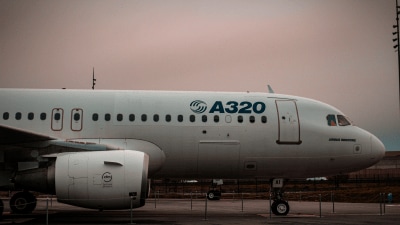Blaming everyone else
Indias airlines must own responsibility for their mess. Thats market discipline
Private airlines have called off their strike planned for August 18 but Indias airlines are clearly a disgruntled lot. Their sense of grievance has been building for some time,culminating in recent demands which focus particularly on airport fees and fuel costs. They have a point: airport fees,especially in Delhi and Mumbai,have been revised to
the airlines (and customers) disadvantage to benefit contractors who inappropriately underestimated their costs; and,the price of air turbine fuel (ATF) is kept high because of Indias dysfunctional energy policy.
But if the airlines think that this absolves them from responsibility,then theyre wrong. The airline business is tough. It requires corporations that can both plan given the massive purchases and sunk costs involved while also being nimble: to respond to political constraints,sudden changes in travel patterns,variation in fuel prices. Simply put,the complainers have failed to do this. In the short- and medium- term,they have made bad corporate decisions; and their overall business plans are poorly thought out and are the primary cause of the crisis. It is no coincidence that,even though some low-cost airlines had joined the strike call,theyre making profits while full-service airlines like Kingfisher and Jet are massively in the red. Kingfishers Vijay Mallya famously derided Indias first low-cost carrier,Air Deccans plans half a decade ago,saying it wouldnt work in India. In a capitalist economy,if you place massive bets based on thinking of that sort,you cannot blame anyone else if you lose. This year budget airlines have,for the first time,a majority of flyers; and their relevant marginal cost,the cost per available seat kilometre,is half that of the full-service airlines,which is almost Rs.5. That is simply too much of a gap to be sustainable,and business plans that thought so have deservedly been shown up.
Indias airlines now complain that fuel prices are 45 per cent or so of their operating expenses. (Changing that will face stiff opposition from states,which benefit from sales taxes on ATF.) They will claim that the actual price they face is higher than that faced by other airlines worldwide; but that is a fallacious argument. Where they compete with those airlines,they face a level playing field,able to buy ATF at cheaper international rates. The question is why they thought business plans could be imported from abroad to Indian conditions,and a very different cost structure. There is no reason why that would work in the airline industry,when it wouldnt work in any other. Unfair,sure; but in a market economy,you have to expect unfairness and turn it to advantage.



- 01
- 02
- 03
- 04
- 05




























